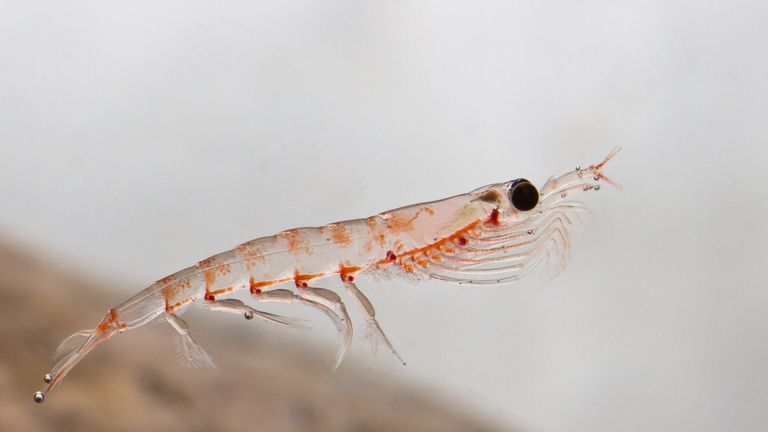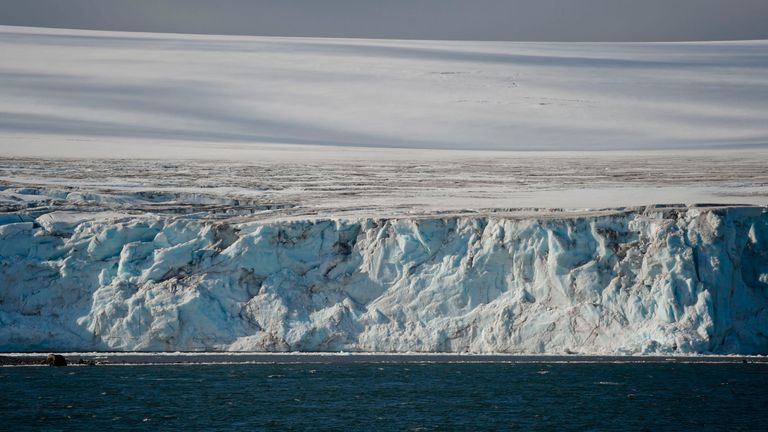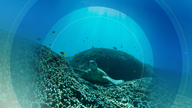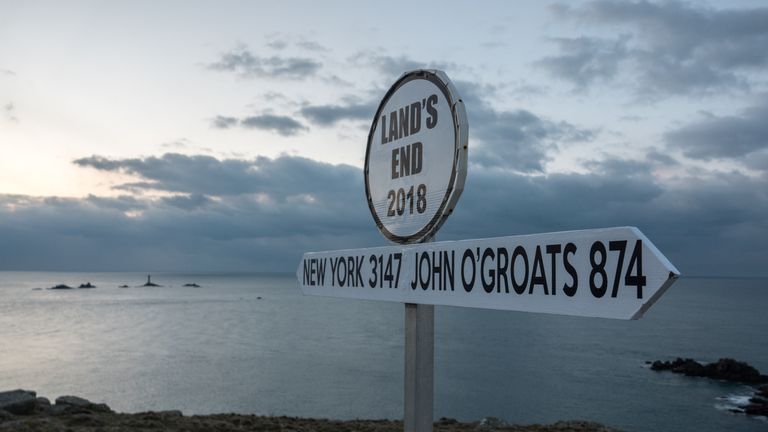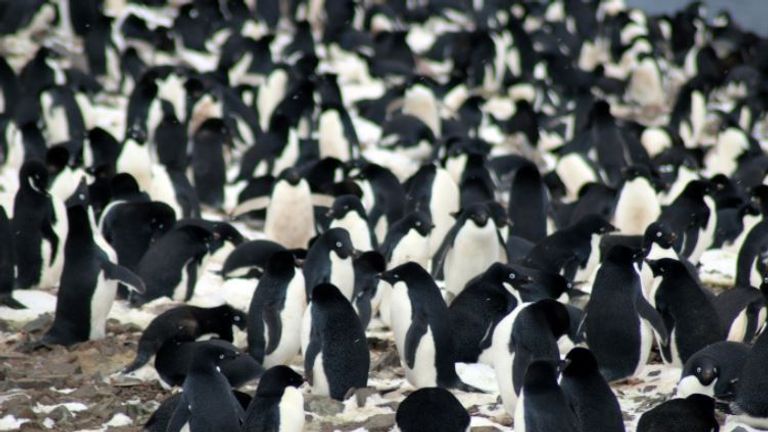Krill fishing banned across much of the Antarctic under new deal
Stocks of the tiny crustaceans - consumed in vast quantities by whales, penguins and seals - have fallen drastically.
Tuesday 10 July 2018 12:41, UK
A deal to ban the fishing of krill across large parts of the Antarctic has been welcomed by conservationists as "bold and progressive".
The five firms making up the Association of Responsible Krill Harvesting (ARK), from Norway, Chile, South Korea and China, have agreed to stop fishing the tiny crustaceans in sensitive coastal parts of the frozen continent.
The total area where the ban will apply will reportedly constitute the world's biggest ocean sanctuary.
:: Starbucks to ban plastic straws
Stocks of krill, which are consumed in vast quantities by whales, penguins and seals, have fallen drastically due to climate change and industrial-scale fishing, potentially endangering the delicate ecological balance of the region and its larger predators.
"Our members agree that the industry must develop sustainably to ensure long-term viability of the krill stocks and the predators that depend on it," ARK said in a statement.
:: Swimming the Channel to expose ocean crisis
"Today, we are moving forward with a pioneer initiative, implementing voluntary restricted zones for the krill fishery in the Antarctic Peninsula."
The move follows a campaign backed by 1.7m people and led by conservation group Greenpeace, which welcomed the initiative.
"This is a bold and progressive response from these krill fishing companies, and we hope to see the remainder of the krill industry follow suit," said Greenpeace spokesman Phil Vine.
:: UK Government's coastal rescue plan 'a sham'
"The momentum for protection of the Antarctic's waters and wildlife is snowballing," he added.
Krill, a protein-rich shrimp-like crustacean, is mostly used in the aquaculture industry, while its oil is a popular nutritional supplement.
As well as being a key part of the Antarctic food chain, it helps remove greenhouse gas carbon dioxide, by eating carbon-rich food near the surface and excreting it when they sink to lower, colder water.
ARK is also supporting moves to create a series of marine protected areas (MPAs) throughout the Southern Ocean, including in places where they currently operate.
:: Sky's Ocean Rescue campaign encourages people to reduce their single-use plastics. You can find out more about the campaign and how to get involved at www.skyoceanrescue.com
